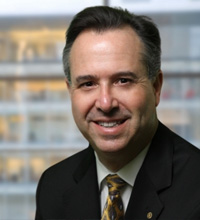The Role of the Attorney Comes Full Circle
Transactional Attorneys and Personal General Counsels
There was a time when a lawyer was considered the “consigliere” to the family and its business. Remember the role of Robert Duvall as Tom Hagen in The Godfather? Tom Hagen’s role was not as a transaction lawyer (that role was left to the Corleones), but as a true counselor who advised on all of the aspects of the situation.
Today, however, the relationship between a lawyer and the family business is often more structured, with many lawyers being hired for specific tasks. Such lawyers complete their transaction or litigation and often move on to the next client or task. In some cases, an entrepreneur has a brilliant idea and needs to form a business entity to carry it out. In the past, he or she would find a lawyer to set up a corporate entity; nowadays the same entrepreneur may just go to an Internet provider such as LegalZoom to do so, resulting in a transactional relationship or possibly no relationship at all in the early stages of the business.
Fast forward over the many years that it takes for that business owner to become successful and the ensuing needs for transactional legal help. For example, the purchase of land on which to operate the business, an employment dispute with his comptroller, the creation of other entities for specific operating purposes. Each involves a specific undertaking, but often there is a lack of perception on the part of the owner that a lawyer’s advice on the various strategic legal planning aspects as his business grows is needed.
Then one day he or she looks around and sees a sprawling successful business and wonders what will happen to this enterprise in the future. Realizing the need to establish a plan, the founder may seek out the only type of lawyer with whom he or she is familiar—the transaction lawyer.
It is at this juncture where the myth that the lawyer who is laser focused on transaction work can easily step into the role of a “consigliere ” needs to be dispelled. At this stage a family business needs more than a transaction completed –this is when having a personal general counsel is beneficial.
Personal general counsels are typically attorneys with a broad knowledge base. They handle all types of business and personal matters while building an ongoing relationship with their clients and getting a clear understanding of business and family dynamics. This attorney is the counselor for the family and its enterprise(s); there to answer questions and to discuss new ideas.
A Mini-Case
Take for instance this mini-case of All Boxed Up, Inc. which our friend Bruce started. After about 25 years of success, the business was generating over $100 million in sales in four different states in the US. There were a number of entities, including the initial corporation which owned its own building and a number of other corporations and limited liability companies, some of which had key employees as minority members.
His daughter, Lisa, who was 42, has become his right-hand in day-to-day management, while one of his sons is a successful doctor. (The other son didn’t turn out to be so successful and so Bruce provides him with economic assistance). Bruce, who is now a 65 year old widower, has just now been diagnosed with cancer and realizes that he needs to think about the future of All Boxed Up.
Bruce tried to speak to his original attorney, who created all of the entities, but Bruce began to realize that this was the same lawyer that mostly filed paperwork and really didn’t provide strategic advice. He then spoke to friends and other family members, but still wasn’t sure how to resolve the situation. Fortunately for Bruce, he met Michael, an attorney who takes a multi-disciplinary approach to the practice of law.
Over the course of their initial work together, Michael finds out what drives Bruce and what his goals are for his company. During a meeting, Michael sees that Bruce is distracted. After asking some pointed questions, he learns that there is some discord in the family. Lisa wants Bruce to make her Chief Operating Officer, which on the outside, seems practical. But then he realizes, what’s going to happen with the business if he were to pass away? What happens to his sons who aren’t in the business?
Knowing that this is weighing heavily on Bruce’s mind, Michael advises that an improved corporate structure with a solid governance program will start the company down the road to a successful transition where all of his family can play a part. In order to accomplish this, he suggests hiring a family business advisor, who will work with Michael to assist with the non-legal dynamics of the family and the company.
Michael has come to his role as a family business lawyer through his appreciation that such businesses are unique and different from those that are publically traded. He understands that the stakeholders consist of the family, the company, the company’s employees, and the company’s customers. Instead of limiting his focus on one aspect of the law, he broadened his horizon by learning about different corporate structures and the implication on taxes, ownership rights and governance. Michael not only had a vision for the here and now, but also saw beyond the horizon to the future generations who could successfully steward the family business. He was able to advise Bruce on how various trusts would help keep the business in the family. He has now become Bruce’s personal general counsel, helping Bruce grow his enterprise and pass it down to succeeding generations. He also works with Lisa and her brothers engaging them in good corporate governance and their own estate planning.
Full Circle
Family businesses are very similar around the world in terms of their contributions to the long-term financial and social stability of their communities and their nations. The attorneys who practice in family business law are redefining the traditional role of legal counselor to these businesses, viewing the entire business life cycle of their clients’ firms as relevant to business and legal decisions made today.
About the contributors:
 John D. Dadakis is chair of Holland & Knight’s New York Private Wealth Services Group. He concentrates his wealth planning practice on representing executives of Fortune 500 companies, private businesses, and managing directors and investors in hedge and private equity funds. As “Personal General Counsel” to an elite client base, he implements wealth preservation strategies that address the financial goals of those he serves. He is one of the founders of Attorneys for Family-Held Enterprises (afhe). John can be reached at john.dadakis@hklaw.com.
John D. Dadakis is chair of Holland & Knight’s New York Private Wealth Services Group. He concentrates his wealth planning practice on representing executives of Fortune 500 companies, private businesses, and managing directors and investors in hedge and private equity funds. As “Personal General Counsel” to an elite client base, he implements wealth preservation strategies that address the financial goals of those he serves. He is one of the founders of Attorneys for Family-Held Enterprises (afhe). John can be reached at john.dadakis@hklaw.com.
 Michael de Leon Hawthorne is a partner at Thompson Coburn LLP in Washington, DC. He has a diverse practice focusing on the corporate and securities needs of private and public businesses throughout the United States. Michael has significant experience advising family-owned businesses on critical issues of succession planning, trusts, and estate preparation. He is the current president of Attorneys for Family-Held Enterprises (afhe). Michael can be reached at mhawthorne@thompsoncoburn.com.
Michael de Leon Hawthorne is a partner at Thompson Coburn LLP in Washington, DC. He has a diverse practice focusing on the corporate and securities needs of private and public businesses throughout the United States. Michael has significant experience advising family-owned businesses on critical issues of succession planning, trusts, and estate preparation. He is the current president of Attorneys for Family-Held Enterprises (afhe). Michael can be reached at mhawthorne@thompsoncoburn.com.
About Attorneys for Family-Held Enterprises (afhe)
afhe is an independent, non-profit association of attorneys and non-attorneys who provide multi-disciplinary counsel and advice to privately-held enterprises, their owner-managers and family members, and serves as a resource for individuals, business entities, trade associations, the business press, and other groups. The goal is to bring together attorneys from various practices in corporate, estate planning, tax, and litigation to help them become more attuned to the needs of family businesses. afhe members focus on the establishment, growth, and success of family-held enterprise, the engine behind entrepreneurship. afhe is an association member of the Family Firm Institute.




